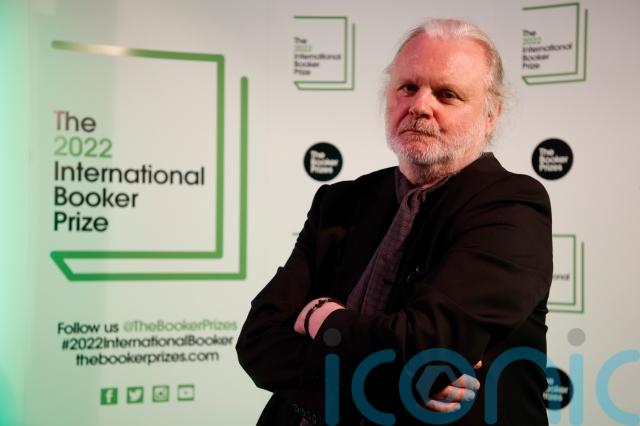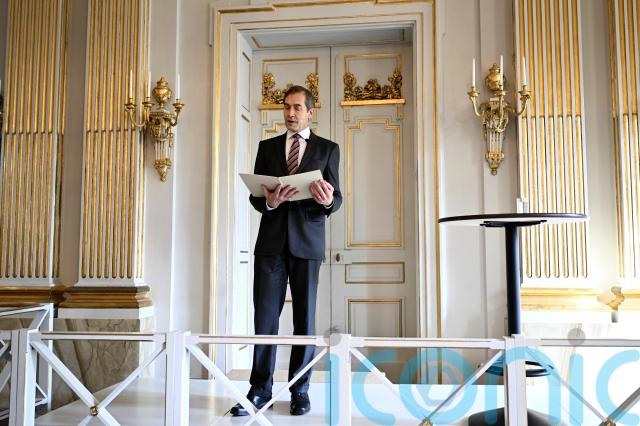
The latest winner of the Nobel Prize in Literature has cited Irish writer Samuel Beckett's "bleak, enigmatic work" as an influence on his minimalist style.
Beckett was the 1969 Nobel literature laureate.
Jon Fosse, known as a master of spare Nordic writing in a sprawling body of work ranging from plays to novels and children's books, made the comments after winning the Nobel Prize on Thursday for works that "give voice to the unsayable".
Chair of the Nobel literature committee, Anders Olsson, said Fosse’s work is rooted "in the language and nature of his Norwegian background".
Fosse (64) told Norwegian public broadcaster, NRK: "I was surprised when they called, yet at the same time not. I have cautiously prepared myself for the possibility that this could happen in the past 10 years.
"It was a great joy for me to get the phone call."

One of his country’s most-performed dramatists, Fosse has written some 40 plays as well as novels, short stories, children’s books, poetry and essays. The Swedish Academy, which awards the prize, said it was "for his innovative plays and prose which give voice to the unsayable".
Permanent secretary of the academy, Mats Malm, reached Fosse by telephone to inform him of the win. He said the writer was driving in the countryside and promised to drive home carefully.
Fosse is the fourth Norwegian writer to be awarded the literature prize; Bjornstjerne Bjornson got it in 1903, Knut Hamsun was awarded it in 1920 and Sigrid Undset in 1928.
Fosse’s work A New Name: Septology VI-VII — described by Olsson as Fosse’s "magnum opus" — was a finalist for the International Booker Prize in 2022.
In a statement released by his publishing house, Samlaget, Fosse said he saw the prize "as an award to the literature that first and foremost aims to be literature, without other considerations".
Mr Malm announced the prize on Thursday in Stockholm.
The Nobel Prizes carry a cash award of 11 million Swedish kronor (£0.8 million) from a bequest left by their creator, Swedish inventor Alfred Nobel. Winners also receive an 18-carat gold medal and diploma at the award ceremonies in December.
The new laureate joins an illustrious list of past winners that ranges from Toni Morrison to Ernest Hemingway and Jean-Paul Sartre — who turned down the prize in 1964.
Last year, French author Annie Ernaux won the prize for what the prize-giving Swedish Academy called "the courage and clinical acuity" of books rooted in her small-town background in the Normandy region of northwest France.
Ernaux was just the 17th woman among the 119 Nobel literature laureates. The literature prize has long faced criticism that it is too focused on European and North American writers, as well as too male-dominated.
In 2018, the award was postponed after sex abuse allegations rocked the Swedish Academy, which names the Nobel literature committee, and sparked an exodus of members. The academy revamped itself but faced more criticism for giving the 2019 award to Austria’s Peter Handke, who has been called an apologist for Serbian war crimes.
Fosse's first novel, Red, Black, was published in 1983, and his debut play, Someone Is Going To Come, in 1992. His major prose works include Melancholy; Morning and Evening, whose two parts depict a birth and a death; Wakefulness; and Olav’s Dreams.
His plays, which have been staged across Europe and in the US, include The Name, Dream of Autumn and I am the Wind.
Fosse has also taught writing — one of his students was best-selling Norwegian novelist Karl Ove Knausgaard — and consulted on a Norwegian translation of the Bible.

Fosse writes in Nynorsk, one of the two official written standards of Norwegian that is chiefly spoken in and around Bergen, where the writer lives.
It is used by just 10% of Norway’s 5.4 million people, according to the Language Council of Norway, but is completely intelligible with the other written form, Bokmaal.
Guy Puzey, senior lecturer in Scandinavian Studies at the University of Edinburgh, said Bokmaal is “the language of power, it’s the language of urban centres, of the press”, while Nynorsk is used mainly by people in rural western Norway.
“So it’s a really big day for a minority language,” he said.
In recognition of his contribution to Norwegian culture, Fosse was granted use of an honorary residence in the grounds of the Royal Palace owned by the Norwegian state.
“A great recognition of outstanding authorship that makes an impression and touches people all over the world,” Norway’s Prime Minister Jonas Gahr Store wrote on X, formerly known as Twitter. “All of Norway offers congratulations and is proud today!”
The Nobel Peace Prize is awarded on Friday and the Nobel Memorial Prize in Economic Sciences ends the awards season on Monday.
Subscribe or register today to discover more from DonegalLive.ie
Buy the e-paper of the Donegal Democrat, Donegal People's Press, Donegal Post and Inish Times here for instant access to Donegal's premier news titles.
Keep up with the latest news from Donegal with our daily newsletter featuring the most important stories of the day delivered to your inbox every evening at 5pm.